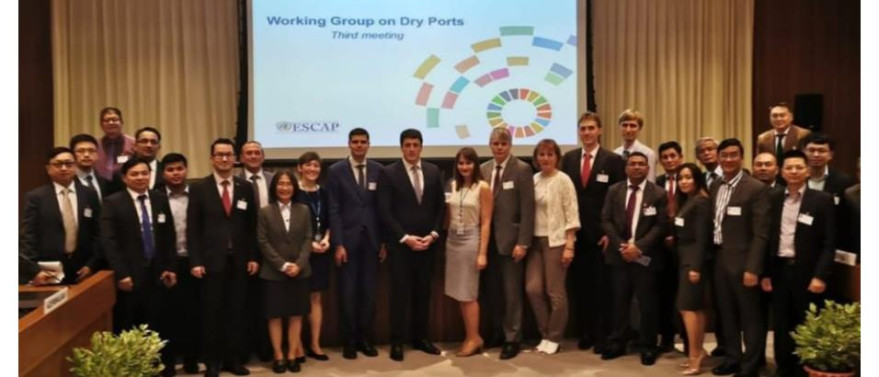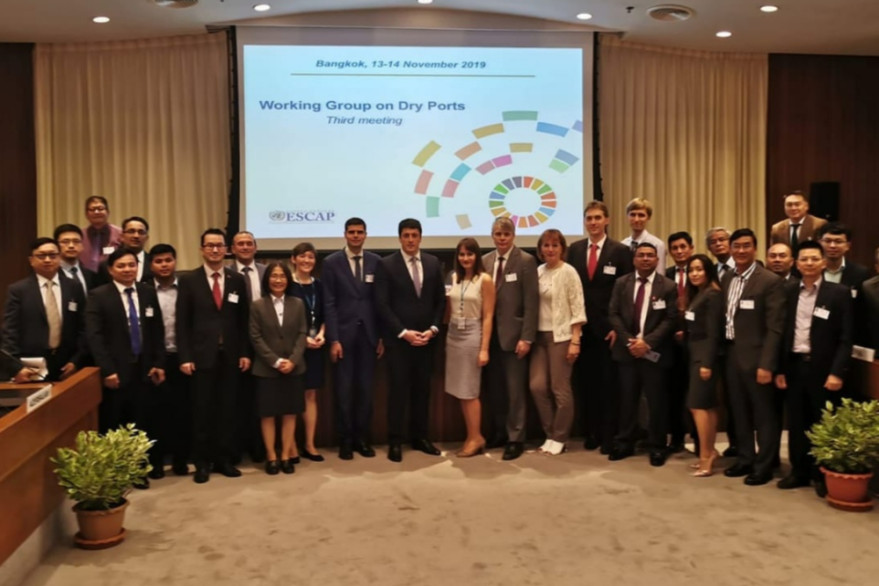Azerbaijan chairs 3rd meeting of working group on dry ports in Thailand

The 3rd meeting of the working group on dry ports was held in Bangkok, Thailand. The event was organized by the United Nations Economic and Social Commission for Asia and the Pacific (UNESCAP), which is one of the 5 regional commissions of the United Nations Economic and Social Council (ECOSOC).
In accordance with the UNESCAP rules of procedure, the working group first elected the chairman and two deputies of the meeting.
Lead Advisor of the International Cooperation Department of the Ministry of Transport, Communications and High Technologies Emil Ahmedov was elected chairman of the working group. Then the meeting continued its work under the chairmanship of the Azerbaijani representative.
During the meeting, the status of implementation of the intergovernmental agreement on dry ports, issues of their development, including attracting investment in dry ports were discussed. First, delegations presented information on the steps taken to develop dry ports in their countries and on strategies, as well as proposals to increase the international importance of this area.
At the session entitled “Country Presentation”, head of transport policy department of the Ministry of Transport, Communications and High Technologies Azer Aliyev provided detailed information on reforms in the transport sector, ongoing projects of regional and local significance, “Strategic Roadmap for the Development of Logistics and Trade in the Republic of Azerbaijan”, as well as the work carried out towards joining our country to the above-mentioned agreement.
It should be noted that the creation of dry ports of international importance plays an important role in the integration between different means of transport, as well as between the Asian Highway and Trans-Asian Railway networks. It will also be useful in eliminating delays in international traffic at border crossings and transit, using energy-efficient and environmentally sustainable means of transport, and creating an international intermodal transport and logistic system.

